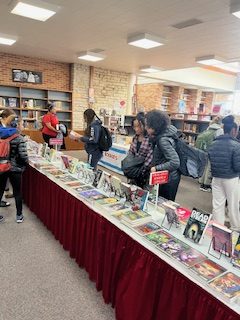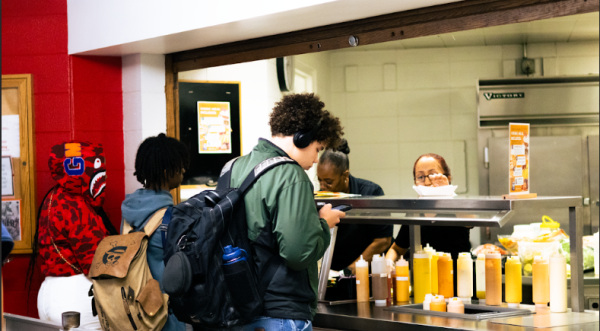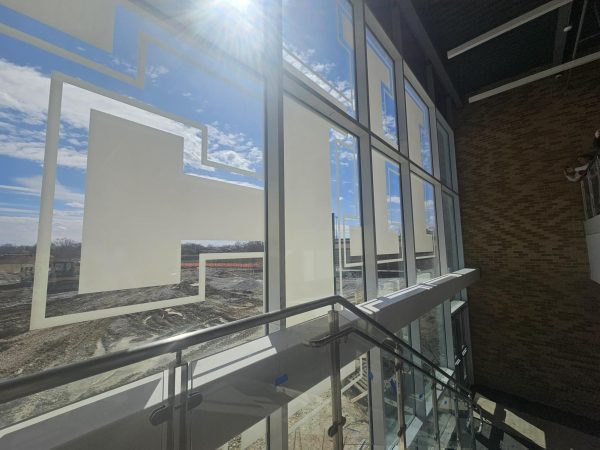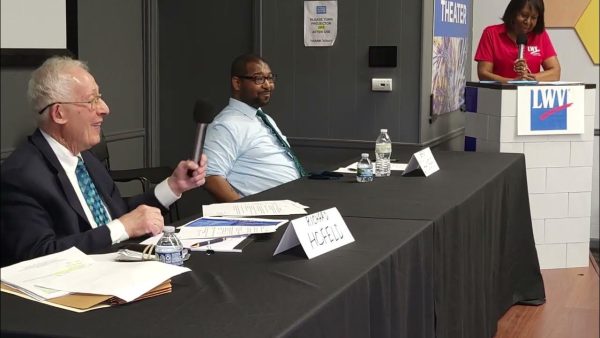Gun violence epidemic hits close to home
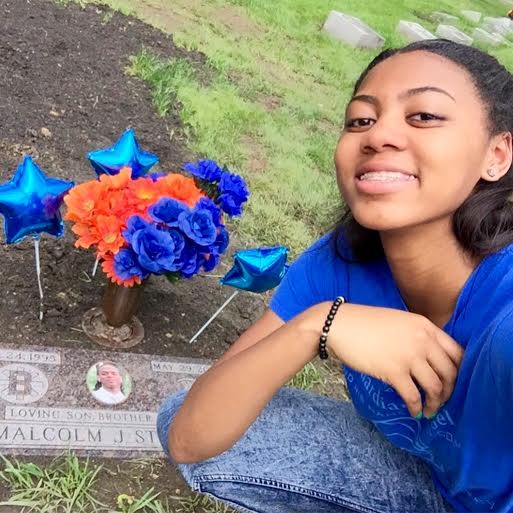
Junior Miani Bolden poses with the grave of her cousin Malcolm Stuckey. Stuckey was one of 407 victims that fell due to Chicago gun violence in 2014.
In May of 2014, junior Miani Bolden woke up to the screams and cries of her parents, echoing down the halls into her room.
Her cousin, Malcolm Stuckey, was dead.
“When he smiled, he lit up the room,” Bolden said. “Malcolm was more like a brother than a cousin. He was the type of person who cracks all the jokes in the family.”
Malcolm was 19-years-old when he passed away. He was shot and killed in the city of Chicago. Last year alone, 486 people were murdered in Chicago. There were 2,986 shooting victims.
This month, the White House released a statement saying over the past decade in America, more than 100,000 people have been killed as a result of gun violence—and millions more have been the victim of assaults, robberies, and other crimes involving a gun.
Bolden says the tremendous amount of gun violence in Chicago has caused an empty spot in her heart.
“Since the day Malcolm passed, everything in my life has been affected… holidays, birthday celebrations, even going church,” Bolden said. “It’ll never be the same without him here.”
After a tragic year with over 300 mass shootings, the Obama Administration is looking to reform Common Sense Gun Laws that require thorough background checks for those trying to buy guns.
Social science teacher Emmanuel Allie says heightened background checks for those obtaining guns will be a good thing.
“In other countries, people just don’t have the same access to guns as we do in America,” Allie said. “This is projected as our gun death rates are obviously higher than countries with more restrictive laws.”
After losing her beloved cousin, Bolden says the Administration’s proposals will be a good thing.
“There will be less killings with [the Administration’s] plan. However, the best solution is to just put the guns down,” she said.
Some feel indifferent about tightening gun control.
Growing up in Englewood, much of H-F alumnus Reginald Stanton’s childhood involved fighting Chicago gun violence.
“We had to watch our backs constantly and had to make sure to be home before it got too dark,” Stanton said. “We couldn’t make ourselves look like victims.”
Stanton says he doesn’t believe restrictive laws will be much of a help on the subject of gun violence.
“It wouldn’t be different. If it was more restrictive, people would just go to greater lengths to get the guns,” he said. “It’s human nature. Make something harder for them to get or have. They will go to greater and more dangerous lengths to get what they need.”
Stanton suggests intense monitoring of Chicago youths as a solution to gun violence, “but even that might not work.”
Bolden is hopeful that Obama’s plan for heightened gun control will allow Chicago’s youth to have better outcomes than her cousin, Malcolm.

